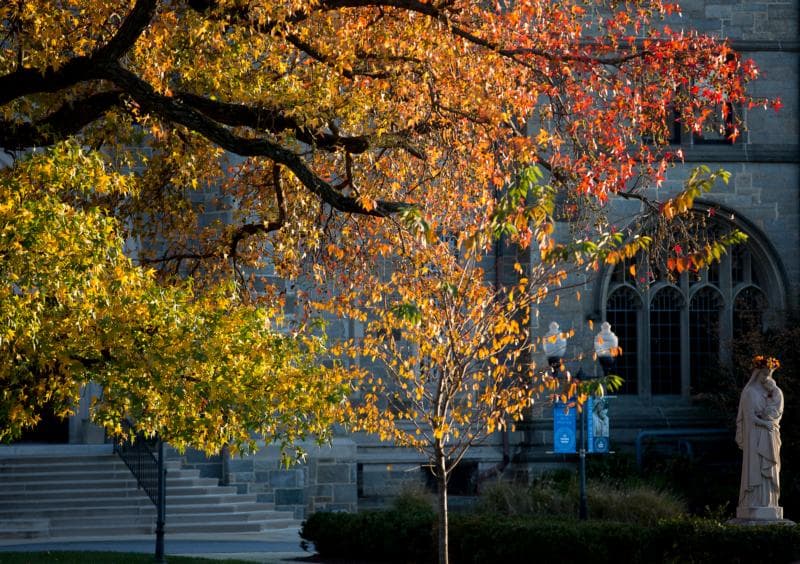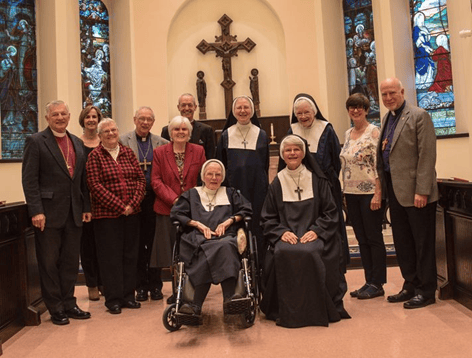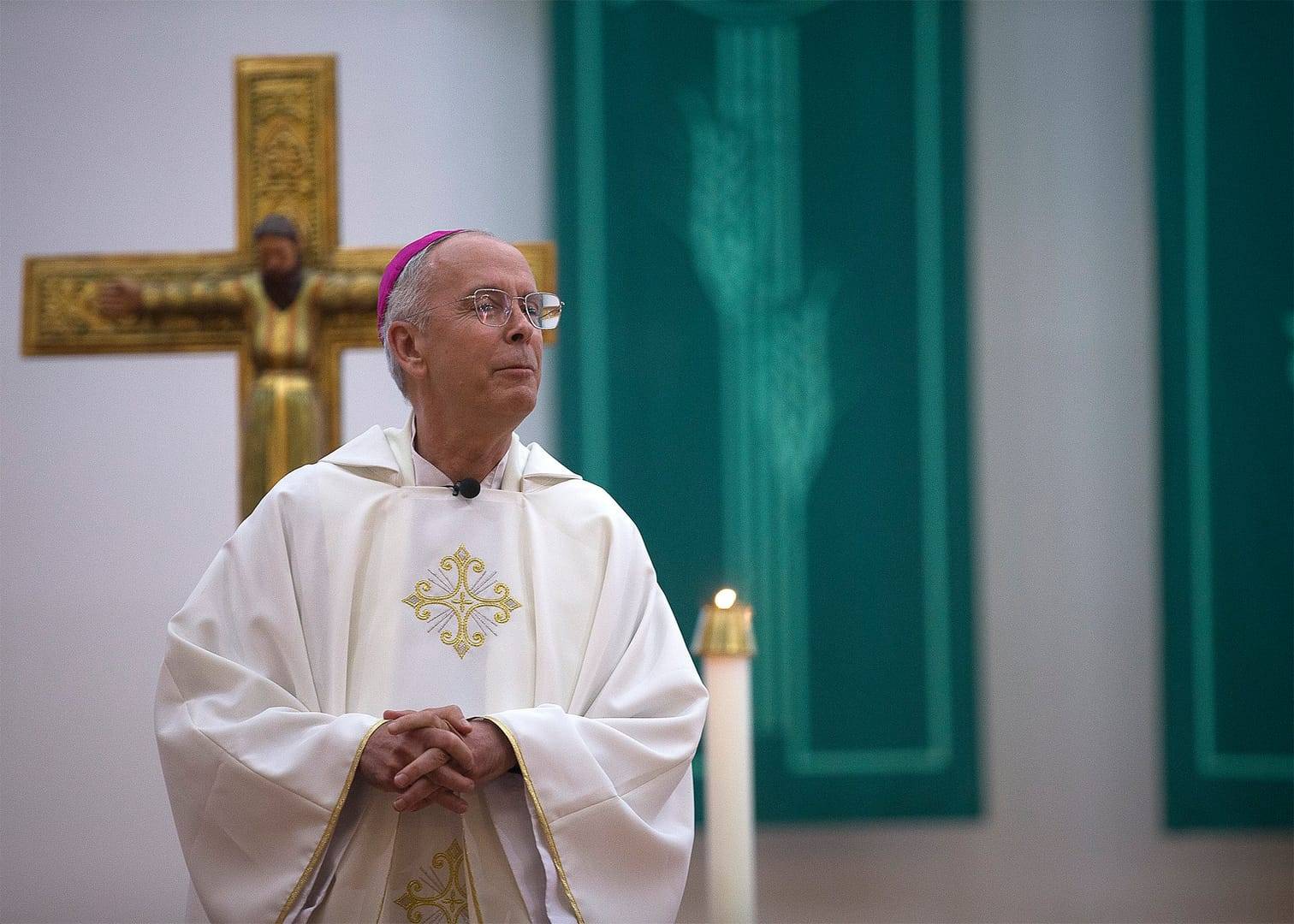Catholic colleges and universities have a difficult task, especially in an academic culture dominated by (for lack of a better way of saying it) left-leaning ethical and political commitments. The tension involved in staying true to the Catholic mission of the institution in such a context is profound.
What came to be known as the “Land O’Lakes Statement” tried to resolve some of these tensions two generations ago, but the new problems have become even more serious in recent years.
There is a small-but-academically-influential constituency, for instance, who would argue that a Catholic institution which tries to live out its concern for protecting and supporting prenatal children is, by definition, misogynist.
The story of a Catholic professor (at a Catholic University) being disciplined for even discussing abortion in an academic context may be an ominous sign of the difficult problems to come. (Incidentally, in light our very different contemporary social context, it is likely time for a new “Land O’Lakes” meeting in an attempt to get out ahead of such challenges. But that is the topic for another column.)
Unfortunately, the headline-makers when it comes to Catholic mission tend to be of this negative sort.
Though they tend to get drowned out by the noise of controversy, there are a number of wonderful opportunities for colleges and universities to live out their Catholic mission.
And not merely with least-common-denominator references to hopelessly vague concepts like “social justice” or “human dignity”—but rather with initiatives closely connected to the values and teaching of the Church.
What follows are three families of issues I argue that many Catholic colleges and universities could move on almost immediately and create little controversy in so doing.
Admitting and supporting greater numbers of students with disabilities and their families.
Christ’s call to recognize and serve the least among us is perhaps most profoundly realized when Christians recognize the face of the Lord in the disabled.
How are Catholic colleges and universities doing at this? The results are mixed. While Catholic institutions make up six of the top fifty schools most friendly to students with disabilities (Xavier leads the way, coming in at number four in the country), we can and should do a lot better.
Indeed, one of the prompts for writing this piece came from a conversation in which I learned of a student applying to a Catholic university who was denied financial aid due to the family’s resources. When it was explained that the resources were necessary to meet the special needs of their disabled child and they couldn’t afford tuition and fees, no exception was made.
It is politically difficult in today’s climate for Catholic institutions of higher education to effectively advocate for disabled individuals at the beginning and end of life. Those tensions need to work themselves out. But in the meantime surely we can do a better job of orienting our institutions such that they support rather than marginalize families of students with disabilities.
Creating supportive conditions such that pregnant students are better able to keep their children.
Even for those of us who have been on various Catholic campuses for much of our lives, it is quite a rare thing to see a pregnant undergraduate student ‘showing.’ This is not, of course, because Catholic undergraduates are not getting pregnant. It is at least in part because most college campuses—whether religious or secular—are profoundly unwelcoming places for pregnant undergraduates.
Some Catholic campuses, however, are working to change the culture. Jesuit campuses, in particular, have been making significant strides for several years. The University of Notre Dame has a specific set of policies which refuse to kick pregnant students out of school (or even off campus), offer 24 hour pregnancy tests and counseling, and even provide multiple places to pump breast milk.
But, again, more can be done. Housing and child care centers for pregnant undergraduates and new mothers should be more of a priority, for instance. Catholic institutions should be leading the way in resisting patriarchal structures which assume that the normative way of being in the world is un-pregnant. Resisting a disease-model of pregnancy not only saves the lives of prenatal children, it is one essential way to honor the dignity of many women.
Especially given our tradition’s central story about the difficult social context for the pregnancy of the Blessed Mother, it would be profoundly mission-centered for Catholic colleges and universities to move on these goals. (Students of Life has wonderful ideas that may spark thought about how to do this.)
Live out Laudato Si’.
What could be more of a no-brainer than invoking Pope Francis’s authoritative teaching on the Care of Our Common Home? Jesuit schools are also leading the way here, holding conferences and enacting environmental-friendly policies. But perhaps no other school has taken Laudato Si’ more seriously the University of San Diego.
Their “campus master plan” for implementing the teaching into their mission is admirably serious, involving a commitment to reduce emissions on multiple fronts (even focusing on how employees and students commute to and from campus) such that they will reduce emissions by 50% by 2035.
More needs to be done, of course. Following the lead of the University of Dayton, Catholic institutions should divest from companies which disproportionately contribute to global climate change. In addition, Catholic campuses should refuse to support the products of factory farms, perhaps the most significant contributors to global climate change.
One of the most obvious moves here would be to return to the Catholic tradition of refusing to serve meat on Fridays throughout the year and refusing to serve meat throughout the entire Lenten season. What a wonderful mission-centered practice that would also witness to the need to resist the most significant contributors to global climate change.
Again, there are still essential discussions to be had about aspects of Catholic mission that don’t sit as easily with the politics of today’s academy. We must not shy away from such discussions. But, in the meantime, there is much that could be done.
And we should do it, first and foremost, because it is who we are. Period.
But we should also do it in light of the coming economic storm in higher education. It is not clear that most Catholic institutions will survive in the long term if we are simply attempting to play by the rules of someone else’s tradition. But if we are consistent with who we are, we at least have a fighting chance to provide the kind of education at the kinds of institutions in which parents and communities will want to invest substantial resources.
Charles C. Camosy is Associate Professor of Theology at Fordham University and co-editor of Polarization in the US Catholic Church: Naming the Wounds, Beginning to Heal.















